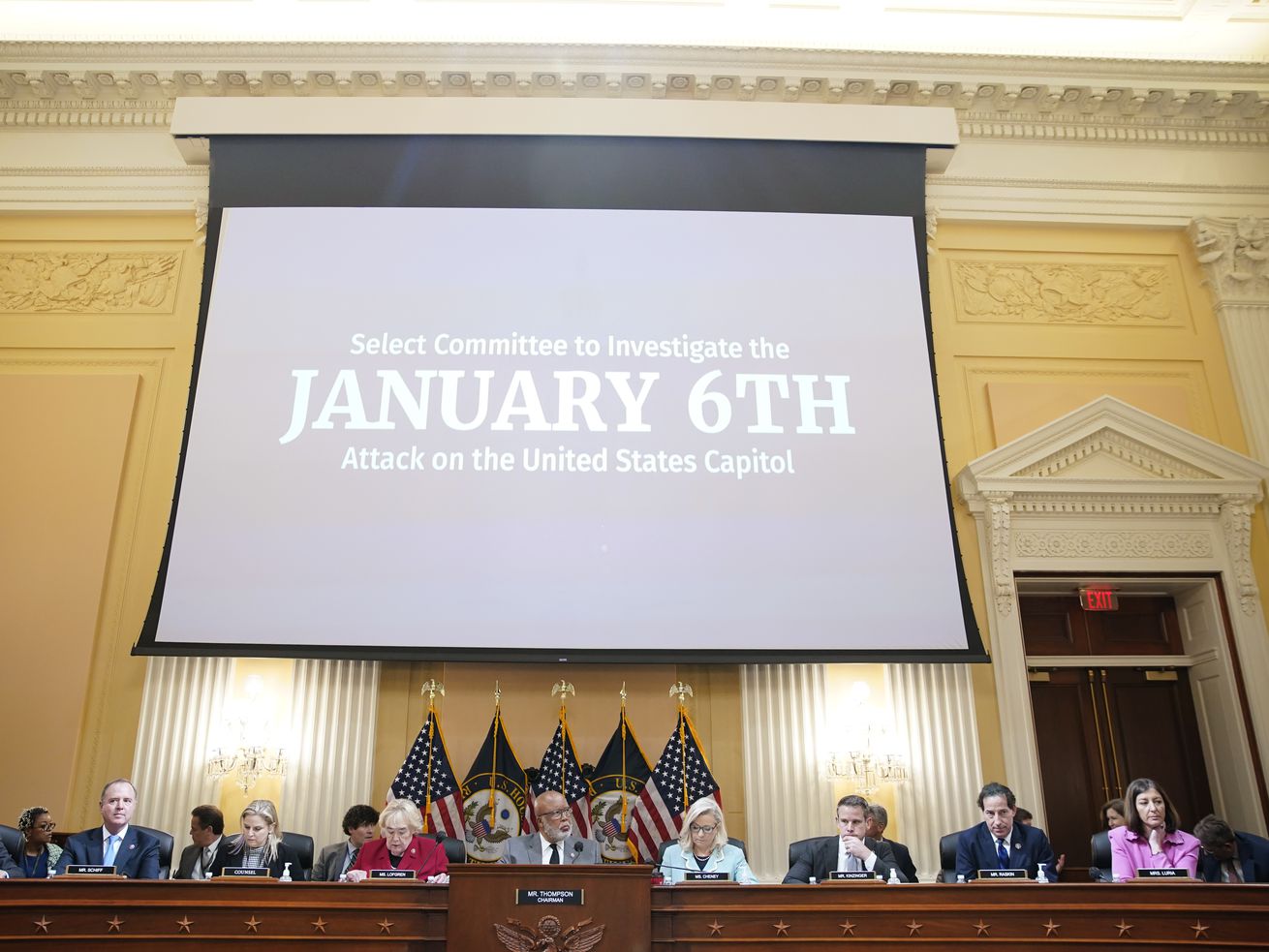
A Monday hearing laid out the case that Trump’s false election fraud claims conned supporters out of $250 million.
In the second January 6 hearing, House lawmakers argued Monday that former President Donald Trump not only engaged in the “big lie” — promoting the false narrative that the election was stolen from him — but also what they dubbed the “big ripoff.” Effectively, they said, Trump conned his supporters into giving him $250 million to contest the election results, while actually funneling many of those funds elsewhere, including to a nonprofit led by former chief of staff Mark Meadows and to Trump’s own hotels.
“We found evidence that the Trump campaign and its surrogates misled donors as to where their funds would go and what they would be used for,” Rep. Zoe Lofgren (D-CA) said in a closing statement for the hearing. “So not only was there the big lie, there was the big ripoff.”
As video testimony from former Trump campaign officials revealed, small-dollar donors were bombarded with emails to donate to an official “Election Defense Fund” in the wake of the 2020 election. Those donors were told that fund was aimed at combating (nonexistent) election fraud. In reality, however, no such fund existed, according to the House committee investigating the January 6, 2021, Capitol riot.
“I don’t believe there was actually a fund called the Election Defense Fund,” Hanna Allred, a former Trump campaign staffer, testified to the committee. Ultimately, the fund was what another staffer categorized as a “marketing tactic” to bring in more money, most of which did not go to election-related litigation.
Instead, many of the funds were directed to a newly created Save America PAC, which has contributed millions to other pro-Trump groups. That includes $1 million to the Conservative Partnership Institute, a charity foundation helmed by Meadows, $5 million to Event Strategies Inc., the vendor that put on Trump’s January 6 rally, and $204,857 to the Trump Hotel Collection.
“Donors deserve to know where their funds are really going,” Lofgren emphasized. During Monday’s hearing, House lawmakers made the case that Trump not only pushed election claims after being told repeatedly that they were false, but that he also used these claims to swindle people of their money.
According to the Washington Post, the House committee is focused on these misleading solicitations because it points to how fundraising emails were a source of spreading misinformation about the election, and because there are potential laws related to fraud that could have been broken.
A piece of the January 6 investigation, for example, centers on whether the campaign asked for donations to mount legal contests even when staffers knew that these lawsuits had no basis to move forward. While the committee can’t directly charge Trump itself, it is able to send recommendations to the Justice Department if there’s evidence that he broke any laws.
Monday’s hearing was the latest in a series of public panels that the committee is holding this month to lay out the events that led to the storming of the Capitol on January 6 last year. Two more hearings are scheduled to take place this week and focus on Trump’s attempts to pressure members of his administration to overturn the 2020 election, despite experts repeatedly telling him he didn’t have the grounds to do so.
0 Comments